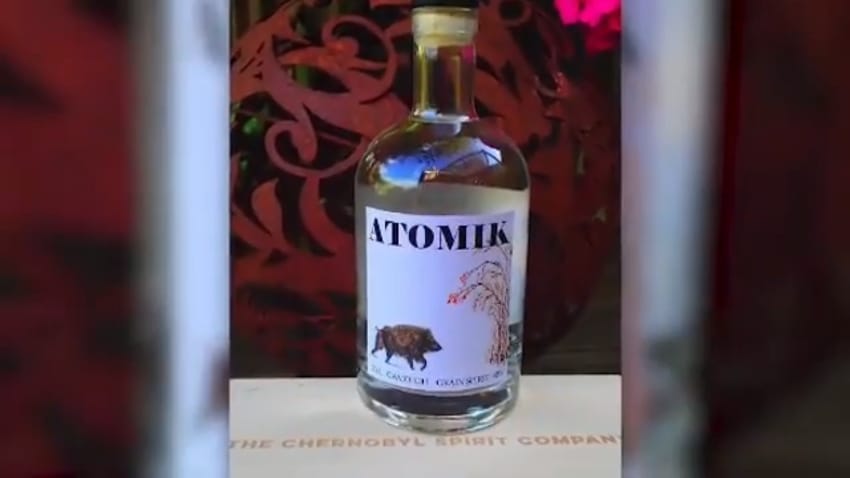If you like drinking and consider yourself to be an adventurous person, you’re probably down for trying the latest and greatest alcoholic offerings out there. However, even the most ardent drunk might have an issue with Atomik vodka, which was made using grains grown in Chernobyl’s exclusion zone.
- Lest we forget, Chernobyl was a terrible nuclear disaster. In fact, it was one of the worst in the world’s history. Despite the fact that 33 years have passed, the effects of the disaster can still be felt by residents and former residents—the ones that are still alive, that is. I’m not sure growing grains in the exclusion zone and then making a drink that people ingest is a great idea, especially since the area—the 18 miles surrounding the explosion site— has been deemed “unsafe for human habitation for 24,000 years.”
- The scientists behind Atomik insist it’s safe. While British scientists insist that the area the grains were grown in is no longer radioactive, I’m not convinced. Still, University of Portsmouth professor Jim Smith says it’s an “artisan” product that he hopes will become widely available via the Chernobyl Spirit Company, especially since 75% of the profits will go back into the Chernobyl community. “I think this is the most important bottle of spirits in the world, because it could help the economic recovery of communities living in and around the abandoned areas,” Smith explained.
- The area has become a wildlife refuge. Scientists have used the proliferation of wildlife in the exclusion zone as proof of the minimal effects of the nuclear disaster. That’s fantastic for the local area, but that doesn’t mean it’s safe for humans to live in or imbibe products from. Atomik isn’t only made from grains grown in the exclusion zone, it also uses water from a deep well near the site. Yikes!
- It has just as much radioactive material as other alcoholic spirits, apparently. According to a spokesperson, no one should be concerned about the radioactivity since regular alcohol has it too. “Because distilling reduces any impurities in the original grain, the only radioactivity the researchers could detect in the alcohol is natural Carbon-14 at the same level you would expect in any spirit drink,” a statement read. “We don’t think the main exclusion zone should be extensively used for agriculture as it is now a wildlife reserve, but there are other areas where people live but agriculture is still banned. We aim to make a high-value product to support economic development outside the main exclusion zone where radiation isn’t now a significant health risk.”
- The Ukraine government seems to be behind the project as well. Talking to the AFP, first deputy head of the State Agency of Ukraine Oleg Nasvit said, “We welcome this initiative to use abandoned lands to help local communities. It is important that we do everything we can to support the restoration of normal life in these areas whilst always putting safety first. I’d call this a high-quality moonshine. It isn’t typical of a more highly purified vodka, but it has the flavor of the grain from our original Ukrainian distillation methods. I like it.”
I’m not sure about this—what do you think?



